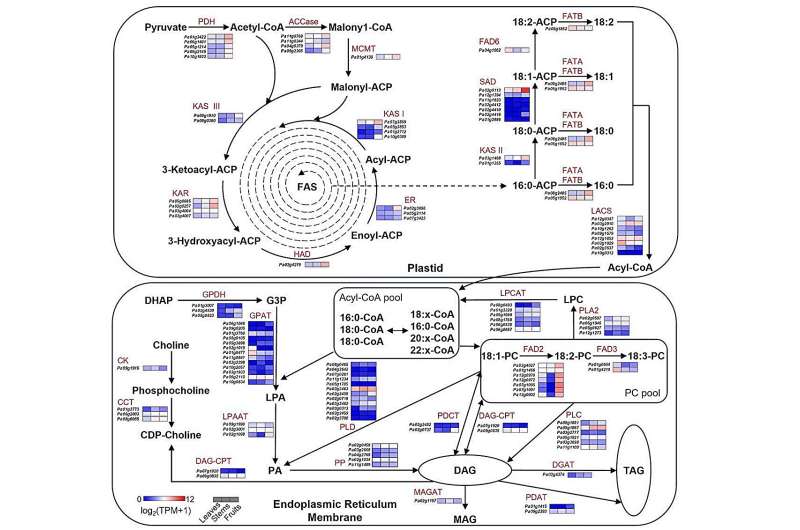Avocado genome assembled: Uncovering disease resistance and fatty acid secrets

The avocado, celebrated for its nutritious unsaturated fats and distinctive flavor, encounters notable agricultural challenges, particularly its vulnerability to diseases that can drastically reduce fruit quality and yield.
Addressing these vulnerabilities necessitates a deeper genetic exploration. This study illuminates the genetic mechanisms behind fat production and disease resistance, setting the stage for targeted genetic enhancements. These enhancements aim to bolster avocado resilience and productivity, aligning with broader agricultural sustainability goals.
Executed by a team from the Chinese Academy of Sciences, the was detailed in Horticulture Research on April 22, 2024. It showcases a complete telomere-to-telomere assembly of the avocado genome. This assembly includes critical regions typically absent in standard genome mappings, significantly enhancing our comprehension of the plant's immune mechanisms and fat production processes.
This thorough research delineated the entire genome of the West Indian avocado, identifying over 40,000 protein-coding genes and a substantial array of repetitive sequences that are integral to the plant's genetic makeup.
Crucially, the study uncovered genes that are instrumental in synthesizing unsaturated fatty acids and orchestrating the plant's defense against pathogens. Special emphasis was placed on the discovery of NLR gene clusters, vital for enhancing the plant's disease resistance.

This groundbreaking genomic revelation provides a comprehensive framework for avocado genetic research, crucial for developing varieties that are disease-resistant and nutritionally optimized. The depth of this assembly ensures it will be a valuable resource for ongoing genetic studies and breeding programs aimed at maximizing avocado production and sustainability.
Dr. Yongping Yang, a lead researcher in the study, said, "This genome assembly is much more than a sequence of DNA. It represents a foundational step toward pioneering avocado breeding strategies that are set to ensure higher quality and robust disease resistance."
The practical applications of this genomic research are vast, promising to significantly enhance the avocado industry by reducing losses from diseases and improving fruit quality.
The genomic insights gleaned from this study pave the way for customized breeding programs, tailored to adapt to various climates and market demands. This adaptability promises a more sustainable and profitable future for avocado cultivation, aligning with global food security goals and contributing to the agricultural innovation landscape.
More information: Tianyu Yang et al, A telomere-to-telomere gap-free reference genome assembly of avocado provides useful resources for identifying genes related to fatty acid biosynthesis and disease resistance, Horticulture Research (2024).
Journal information: Horticulture Research
Provided by Chinese Academy of Sciences




















